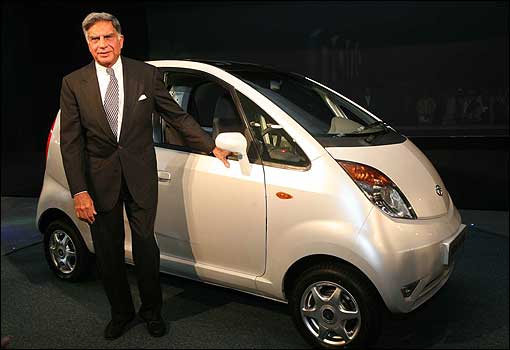
| Monday, November 05, 2012 | Archives | Advertise | Online Buyer's Guide | FLEETSolutions |
Tata Bringing World’s Cheapest Car To U.S. Market
 Americans will soon get the chance to buy what is generally considered the world’s most inexpensive automobile. But considering the safety problems experienced by the little Tata Nano – which has received only a mixed reception in its home Indian market – it’s anyone’s guess whether U.S. motorists will say yes to the microcar. Americans will soon get the chance to buy what is generally considered the world’s most inexpensive automobile. But considering the safety problems experienced by the little Tata Nano – which has received only a mixed reception in its home Indian market – it’s anyone’s guess whether U.S. motorists will say yes to the microcar.The Nano is the work of Tata, one of India’s biggest industrial conglomerates and parent to a carmaking division with aggressive global aspirations. Along with the homegrown Tata brand it also owns both the British Jaguar and Land Rover marques. There’s no confusing their products, however. The original Tata Nano is a step up from a motor scooter, with only the most minimal creature comforts and a severe lacking of safety features, as well, according to critics. The U.S. version will have to meet federal laws, of course, which would mandate the addition of such niceties as airbags and electronic stability control. And the engine may get a little boost from the basic 37 horsepower that it makes in India. But don’t expect the American microcar to have much more, Tata’s eponymous Chairman Rattan Tata said. Nonetheless, he said he sees some exciting opportunities with an American version. "The U.S. is a very enticing market," Tata said. "We are redesigning the Nano for both Europe and the U.S." Of course, Tata thought there’d be plenty of growth in India, as well, where the potential population of motorists ranks second only to China. The executive dreamed up the idea of what is little more than a plastic-bodied scooter after seeing whole families crowd onto two-wheelers. But sales have lagged well behind expectations – apparently in part due to some much-publicized fires and other safety issues that have forced a number of recalls and modifications. The maker promises to have things more in shape for the more demanding American market once it gets here – though precise timing hasn’t been announced. The question is how much all that will cost. From the Indian base of around $3,500 speculation suggests the Tata Nano might be bumped up to as much as $10,000 in the States. The question is whether at that price it will be able to gain traction against markedly better-equipped Asian and American models with more familiar nameplates and better reputations. |
 |
NAFA Fleet Management Association 125 Village Blvd., Suite 200 Princeton, NJ 08540 Telephone: 609.720.0882 Fax: 609.452.8004 |








